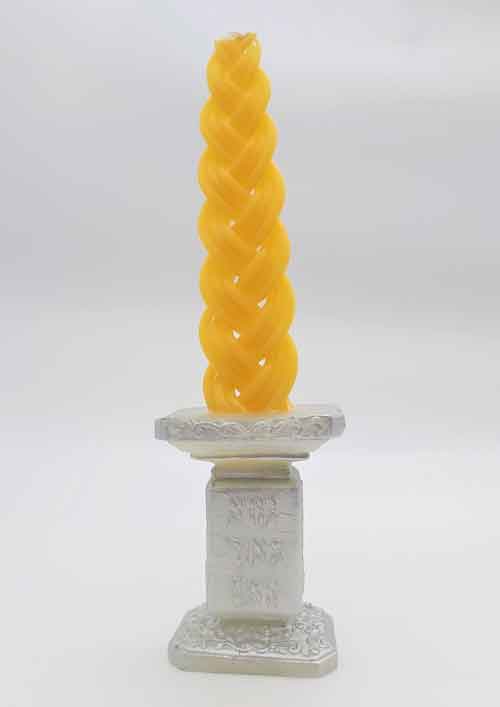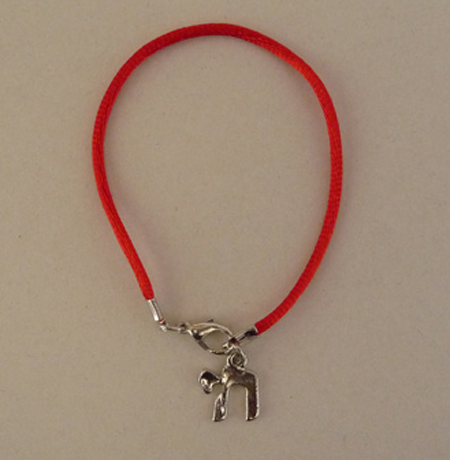
Purity and Faith
Sometimes, a person strives to reach some holy goal, but in the process causes destruction. This is because he has not yet perfected himself...

According to Rebbe Nachman, faith in God and spiritual purity are interdependent. Thus the verse says, "My Covenant is faithful with him" (Tehillim 89:28). That is, only by upholding the Covenant – which means our spiritual purity – can we stay strong in our faith. Avraham, who is called "the father of believers," was also the first person to be circumcised, a symbol of the Covenant, of purity (Circumcision is a symbol of purity from physical desire. See Rambam, Guide for the Perplexed 3:49. See also Likutei Moharan 1:31, and II:83). Our connection to God depends upon these two things: preserving the Covenant that is in our flesh, and clinging to Him with perfect faith. Chazal allude to this when they said, "Which is the proper path a man should choose? The path of great faith" (Tomid 28a).
Rebbe Nachman explains that when you remove the upper point of the dalet from the word echad, "one," you change it to the word acher, "other." That is, if a person damages the point of holiness that connects him to God, he loses his faith and will come to worship other gods. Thus, Rabbi Shimon bar Yochai said that the verse, "Do not stray after false gods," also applies to those who stray after their eyes, which is the beginning of spiritual impurity.
What Did He Intend? What Did He Do?
Think for a moment. What did Cain wan and what did he actually do? Cain wanted to be close to God. He wanted God’s presence to rest upon him through his offering, as it did before Abel’s. But what did he do? Instead of learning from Abel how to serve God best (just as Abel learned from Cain the very idea of bringing a sacrifice, as the verse says, "And Hevel also brought an offering [Bereishit 4:4]), instead of relating to his brother as a guide and teacher, he rose up and killed him. Had he only listened he would have ascended even higher than Abel, for he was the first-born, whose soul came from a loftier place (Sefer HaGilgulim chapter 21). "If you do well, you will be uplifted," God told him (Bereishit 4:7). That is, if you perfect yourself, you certainly will ascend higher. But instead of doing this, he destroyed a quarter of the world.
There is a deep lesson here. Sometimes, a person strives to reach some holy goal, but in the process causes destruction. This is because he has not yet perfected himself and his bad character traits are influencing him the entire time.
We need a lot of help to travel the path of avodat Hashem, Divine service, and not be influenced by our personality flaws. Every path has its crooked parts (see Rashi on Devarim 1:22). Bad character traits, especially jealously, pride, anger and contentiousness, distort our perception and make it impossible for us to see truth; whereas refining our character is the very root and source of Torah (Sha’arei Kedushah, chapter 1:2, by Rabbi Chaim Vital). As Rabbi Nachman said, "A person with an argumentative nature cannot bear to hear the truth" (Likutey Moharan I:122). Perhaps this is why Cain called his son Chanoch (from the word "to teach"), for with proper education, he would not repeat the mistakes of his father.
The verse says, "You should walk in the ways of good men, and keep the paths of the righteous" (Mishlei 2:20), that is, if we walk in the way of good middot, good character traits, we will be worthy to keep the path of righteousness (Mie HaShiloach).
(Used with permission from the author. From the book "In all my Ways" Keren Ohr Publications)











Tell us what you think!
Thank you for your comment!
It will be published after approval by the Editor.